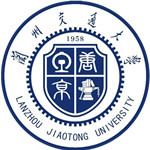School Badge

About Lanzhou Jiaotong University
Lanzhou Jiaotong University is located in Lanzhou, the capital city of Gansu Province and an important node city of “One Belt, One Road”. It is a university jointly built by China National Railway Group Co. “Ministry of Education, Ministry of Education, Ministry of Education, Ministry of Education, Ministry of Education It is also a model base for international students of the Ministry of Education, and a high level university and “first-class discipline” construction university in Gansu Province. The university has a large number of talent training bases, such as the national language promotion base, the national railroad science base, the national Beidou science base, the cultural heritage base of the Ministry of Education, the western base of continuing education of the Ministry of Railways and the small language training base in the northwest region.The predecessor of the school can be traced back to the Shanhaiguan Beiyang Railway Government College established in 1896 and the Beijing Railway Management Institute established in 1909. 1958, the Ministry of Railways decided to establish the third railroad undergraduate college in Lanzhou in China – Lanzhou Railway College. Seven undergraduate majors and five specialist majors in five departments of railway transportation, railway motor, railway construction, railway bridge and tunnel, railway machinery were moved to Lanzhou by Beijing Railway Institute (i.e. Beijing Railway Management Institute, now Beijing Jiaotong University) and Tangshan Railway Institute (i.e. Shanhaiguan Beiyang Railway Government College, now Southwest Jiaotong University), with Lin Dami, Shen Zhiyang, Hu Chunnong, Sun Qiyin and Zhang Diande. In the 1960s, a group of associate doctors of science and technology and postgraduates from the Soviet Union were transferred to enrich the faculty, and the old generation of educators led the students from all over the world to work in the difficult environment of the northwest with unchanged determination and diligence, and opened the first century of Lanzhou Jiaotong University with their wisdom and emotion of building, loving and honoring the university. In 2000, the university implemented the system of “joint construction between the central and local governments, with the local government as the main management”, and in 2003, Lanzhou Railway Institute was renamed Lanzhou Jiaotong University. After 64 years of construction and development, the university has become the cradle of Chinese railroad engineers, and has steadfastly taken a path of running school with rail transportation as its core feature, and developed into an institution of higher education with distinctive industry features, outstanding ability to serve the local area, and renowned in China, and irreplaceable in the construction of rail transportation in Northwest China.
The university has 2 campuses, covering an area of 1564 mu, with a building area of 709,700 square meters and a library collection of 2,311,800 books. There are 22 colleges (departments) directly under the university and 1 national university science and technology park. There are 31,198 full-time students, including 22,390 undergraduates, 6,793 postgraduates (6,442 master’s students and 351 doctoral students), 231 international students and 1,754 senior vocational students.
There are 2,346 faculty members, including 1,780 full-time teachers, 344 professors and 650 associate professors, 119 doctoral supervisors and 1,293 master’s supervisors. There are 2 double-appointed academicians, 1 special professor of “Changjiang Scholar”, 2 special professors of “Changjiang Scholar” introduced flexibly, and 2 national outstanding youths. There are winners of “May Day Labor Medal”, national outstanding teachers, national advanced individual of teacher morality, national model teachers, winners of Zhan Tianyou Railway Science and Technology Award, Mao Yisheng Railway Science and Technology Award, winners of Baosteel Education Award, Gansu Province higher education institutions young teachers “Achievement Award There are 344 high-level talents, including the winner of the “Success Award” and the famous teaching teacher of Gansu Province.
There are 70 undergraduate enrollment majors and directions. There are 6 national specialty construction points, 1 national comprehensive reform pilot specialty, 19 majors have been approved as national first-class undergraduate specialty construction points (vehicle engineering, electrical engineering and its automation, railway traffic signal and control, communication engineering, computer science and technology, civil engineering, engineering management, water supply and drainage science and engineering, building environment and energy application engineering, transportation, logistics management, English (geographic information science, mechanical design and manufacturing and its automation, electronic science and technology, software engineering, railway engineering, surveying and mapping engineering, traffic engineering), five courses were approved as national first-class undergraduate courses (rolling stock vehicle construction and design, engineering drawing, water quality engineering II, university computer foundation 1, data and scenario-driven high-speed train operation control virtual simulation experiment).
Six majors have passed the engineering education professional certification of the Ministry of Education, four majors have passed the professional assessment of the Ministry of Education and the Ministry of Housing and Construction, and five majors have undergone the on-site examination for engineering education certification of the Ministry of Education in 2021. There are 1 national teaching team, 1 national university Huang Danian type teacher team, 4 national experimental teaching demonstration centers, 1 national virtual simulation experimental teaching center, 1 national experimental zone for innovation of talent training mode, 11 national engineering practice education centers, 19 provincial teaching teams and 16 provincial experimental teaching demonstration centers.
Relying on the railroad industry, the university highlights the characteristics of transportation, transportation engineering, civil engineering, environmental science and engineering, mechanical engineering, information and communication engineering and other provincial first-class disciplines have obvious comparative advantages in China. There are 8 disciplines, and the disciplines of “engineering” and “chemistry” have entered the ranks of international high-level disciplines. There are 5 post-doctoral research stations, 6 first-level disciplines authorized for doctoral degree (including 2 disciplines of engineering and management), 28 first-level disciplines authorized for master’s degree, and 15 professional degree categories authorized for master’s degree. There are 6 disciplines in the provincial “double first-class” characteristic construction project and 24 provincial key disciplines. In the fourth round of discipline evaluation by the Ministry of Education, three disciplines of transportation engineering, civil engineering and environmental science and engineering were rated as B-class disciplines, and the discipline of mechanical engineering was rated as B- class.
In the past five years, the university has set up the Yellow River Water Environment Research Institute and Changzhou Research Institute around the national strategies of ecological civilization construction and high-speed railway construction. In the past five years, the university has undertaken 1,031 vertical research projects and more than 4,273 horizontal research projects. The university has received 52 scientific and technological achievements at provincial and ministerial level, including 1 National Science and Technology Progress Second Prize, 4 Gansu Provincial Science and Technology Progress First Prize, and 1 Ministry of Education Scientific Research Excellence Award for Higher Education Second Prize.
The university actively carries out foreign exchanges and cooperation. It has signed a counterpart support agreement with Tianjin University, and has carried out fruitful cooperation in doctoral training, scientific research and faculty building. The university has established long-term cooperation with more than 50 institutions of higher education in more than 20 countries and regions, including the United States, the United Kingdom, France, Russia, Canada, Japan, Spain, Brazil, etc. Since 2003, the university has launched a 2+2 dual-degree cooperation joint program with Iowa State University in the United States. The university has been authorized by the China International Chinese Education Foundation to establish a Confucius Institute with the University of Seville in Spain, which has a 500-year history of operation. The university is qualified to enroll students with Chinese government scholarships and has passed the first batch of quality certification for higher education institutions to study in China, with 231 international students from 42 countries and regions. The university actively serves the “One Belt and One Road” initiative and the “Strong Transportation” strategy, and is a member of the “One Belt and One Road University Strategic Alliance” and the “China-Russia Transportation University Alliance”. “The university has carried out in-depth cooperation and exchange with Russia, North Macedonia, Kazakhstan, Laos and other “Belt and Road” countries and universities, and trained more than 1600 students in transportation, information and infrastructure construction for more than 20 countries along the “Belt and Road”. More than 1,600 international talents in the fields of transportation, information and infrastructure construction have been trained for more than 20 countries along the Belt and Road.







